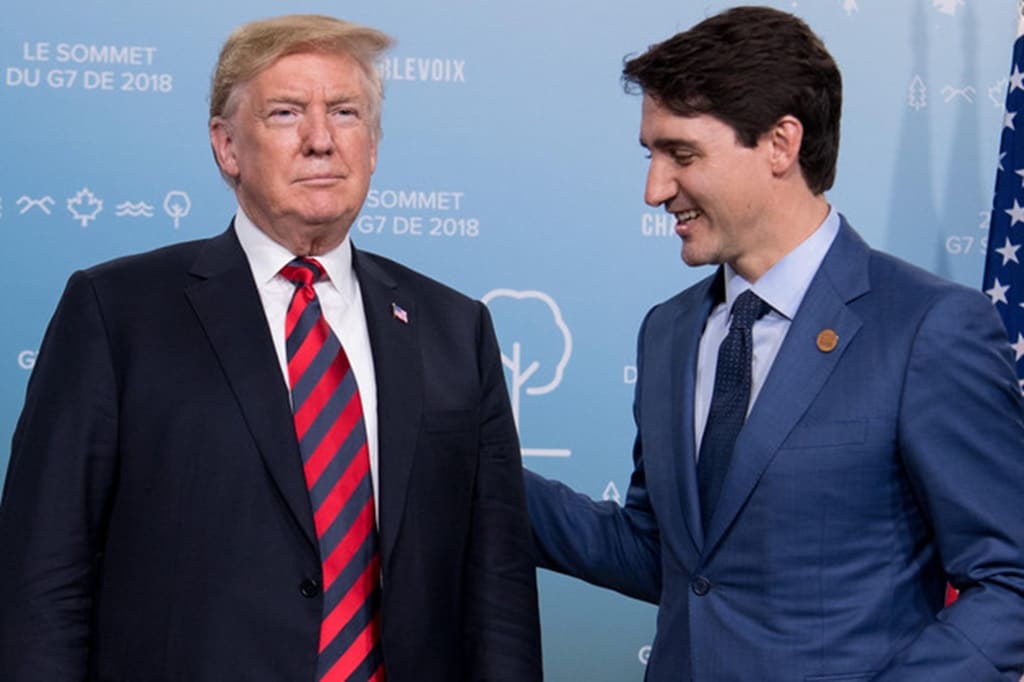Politics
Trudeau Liberals in Panic Mode Over Trump Presidency

Prime Minister Justin Trudeau announced Thursday that he is re-establishing a special Cabinet committee on Canada-US ties to address Liberal concerns about another Donald Trump administration.
Deputy Prime Minister Chrystia Freeland, the country’s finance minister, will chair the group, including the foreign affairs, public safety, and industry ministries.
“Following President Donald Trump’s election for a second term, the Cabinet Committee will focus on critical Canada-U.S. issues,” Trudeau’s office said in a statement Thursday.
During Trump’s first term, Canada saw his move to renegotiate the North American Free Trade Agreement (NAFTA) and claimed that he was considering a 25% tariff on the car sector as an existential danger.
Trudeau contacted Trump on Wednesday to congratulate him, and the two talked about the new free trade agreement he signed with Canada and Mexico during his first term, known as the United States-Mexico-Canada Agreement, which replaced NAFTA.
Although Trump dubbed Trudeau “weak” and “dishonest” during his first term, relations between the two countries have remained strong under Biden’s government.
Trudeau and his Rhetoric
However, after four years of anti-MEGA rhetoric and using Trump as a political scapegoat, Trump’s administration has confirmed Trudeau’s worst concerns. During the last election campaign, Trump advocated 10% to 20% tariffs on imported goods, and in certain rallies, he indicated much larger percentages.
According to the AP reports, Nelson Wiseman, a political science professor at the University of Toronto, believes Canada could expect further levies and pressure to increase its military spending.
According to NATO estimates, Canada will spend 1.33% of GDP on its military budget in 2023, less than the 2% target that NATO countries set for themselves.
Trudeau stated that Canada would fulfill the alliance’s aim by 2032. Trump has asked NATO allies to increase their defense spending to reduce the United States burden and deter the alliance’s adversaries.
“I expect that the free trade deal will be slightly modified as it was during Trump’s first presidency and not dramatically,” according to Wiseman.
“Tariffs will harm the Canadian economy but not cripple it. Countervailing tariffs, the concerns of American business leaders, and Canada’s storehouse of key minerals are all factors to consider during negotiations.
Canada’s border trade
The Canadian government emphasizes that the United States and Canada are each other’s top trading partners, with approximately $3.6 billion Canadian (US$2.7 billion) in products and services crossing the border daily in 2023.
There is strong cooperation in defense, border security, and law enforcement, as well as a significant overlap in culture, traditions, and pastimes, such as shared baseball, hockey, basketball, and soccer leagues. Approximately 400,000 individuals cross the world’s longest international border daily, while an estimated 800,000 Canadians live in the United States.
Robert Bothwell, a professor of Canadian history and international affairs at the University of Toronto, believes Canadians should be concerned about possibly aggressive tariff and trade policies.
“How would you feel if old Uncle Donald was feeling whimsical one morning and decided to do … oh, whatever he’d just heard on Fox News?” Bothwell stated.










































